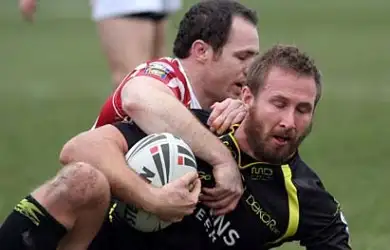Waking up in Vegas

The Rugby Football League took a huge gamble in handing a Super League franchise to Celtic Crusaders, and it doesn’t look to be paying off. The Wales-based side have struggled on the pitch, and the deportation of six players is the nadir of the off-field difficulties they have faced all season.
The fault lies very much at Red Hall for admitting a club into Super League that wasn’t ready, and as time goes by that lack of readiness becomes more and more evident. The licensing process was supposed to prevent clubs reaching the top flight that would be overstretched. Instead the RFL has hand-reared a club that finds life in Super League painfully beyond its capabilities.
The governing body has been gambling with the credibility of Welsh rugby league. Richard Lewis and Nigel Wood must now feel like somebody losing all their money at a Las Vegan casino. Yes the experience was thrilling, and yes the possibilities were intoxicating; but now the awful truth hits home that everything may have been lost.
It’s true that not quite everything has been lost. Celtic Crusaders will limp on until the end of the season and make the move to Newport’s Rodney Parade at the start of next year. But the credibility of Welsh rugby league? That has been left reeling from Celtic Crusaders’ disastrous Super League season, and if the Crusaders can’ turn things around it may be destroyed forever.
The history of rugby league is littered with clubs that haven’t survived because they were expected to establish themselves without a sufficient grassroots base. The obvious example is that of Paris Saint Germain, the most artificial of these artificial creations. Grassroots rugby league in south Wales, however, was growing apace, and was the trigger for Celtic’s 2005 inclusion in National League Two.
But the RFL just couldn’t wait. Instead of giving the Crusaders another three years in the National Leagues to strengthen and consolidate their position the club was handed a Super League license, evidently long before it was ready. Did the RFL, with all its talk of stability, really expect a club that had only existed for three years to make it in Super League? Seemingly so; what other conclusion can be drawn?
According to the Crusaders the loss of these players will allow some young Welsh players an opportunity to play. Yet those players are unlikely to be ready for Super League. If the club was still in the National Leagues they would be in a better position to bring through local talent without the fear of conceding seventy points at the hands of Leeds Rhinos.
The club was earmarked for Super League from the very beginning. If instead the club and the RFL had been happy to wait as long as it took to be ready rather than reaching for the top fight as soon as possible this controversy need never have happened. The club would not have been so desperate to have these six players on the wrong kind of visa, and we may have seen Welsh players establishing themselves in the lower leagues.
Those clubs that missed out on a Super League license will feel rightly aggrieved. Grassroots rugby league in south Wales has suffered another blow. The anti-expansionists think they’ve been proven right. All because the RFL, instead of waiting for things to progress naturally, had to make this desperate gamble.
Keep Your Eye on Rugby League